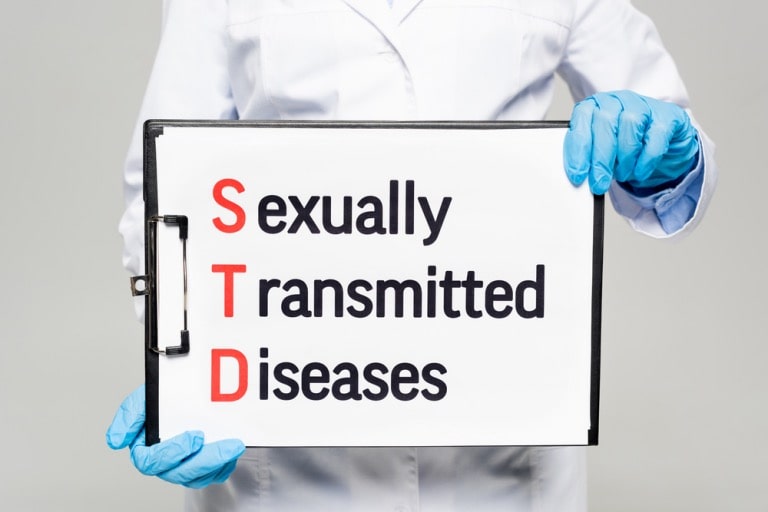STDs aren’t often talked about due to the shame and stigma surrounding these diseases. If you are a sexually active person, you shouldn’t be ashamed to seek knowledge to prevent yourself from getting an infection.
Knowing the incubation period for different STDs can help determine when to get tested for the most accurate results. If you suspect that you’ve been exposed to an STD, you shouldn’t wait long before getting tested. There are lots of STD testing locations open on Saturday to fit your busy schedule.
Read on to learn more about the incubation periods for common STDs and the importance of getting diagnosed and treated early.
STD Incubation Periods
The incubation period is the time it takes before you get the first symptoms after exposure to an STD. This period might vary from one disease to another. In some cases, it might take months, and in others, it might take just a few days.
During the incubation period, you might not get any symptoms, and the tests may come out negative. Some diseases may also take months or years to produce symptoms, even after the incubation period has passed. That’s why it’s important to get tested if you suspect that you’ve been exposed to an STD, even if you don’t have any symptoms.
How Soon Can You Get Tested for an STD?
In most cases, you can get an STD test within a few weeks of exposure. After the incubation period has elapsed, most infections are detectable through antibody-specific blood tests, and those that have lesions can be detected via swab, urine, or culture tests.
If you’re at a high risk of getting an STD, you should ask for a retest, even after the results come out negative. That’s because you might have been tested too soon, or you might have contracted the disease from sleeping with a new partner.
As a rule of thumb, you should get retested three months after your initial test just to be certain that you didn’t receive a false negative. This also applies to individuals who have been treated in the preceding months.
Most post-treatment re-infections happen due to one partner not receiving treatment or having sex with a new partner. To avoid repeat infections, you should ensure that your sexual partner(s) also get tested and treated.
Testing Window for Common STDs
HIV
There are two methods of detecting HIV: the nucleic acid test method and the antigen/antibody test method. The antigen/antibody test uses a saliva or blood sample to test for the presence of HIV antibodies. This method typically takes the longest to get accurate results after exposure, usually 23-90 days.
The nucleic acid test method uses blood to test for the presence of HIV. It can also determine the quantity of the virus present in the blood. This method is more accurate and can indicate a positive result 10 to 33 days after exposure.
Chlamydia
Chlamydia is the most common STI in the United States. Its symptoms usually begin to develop within 7 to 21 days of exposure. A Chlamydia test typically looks for Chlamydia trachomatis, the bacteria that causes the infection.
For this test, your healthcare provider will ask you to submit a urine sample. They might also take a swab from your vagina, throat, anus, or eye, depending on where the infection might be. A test can detect chlamydia after one to two weeks of exposure.
Gonorrhea
There are several different ways to test gonorrhea. For women, a healthcare provider will usually take a swab from the vagina, cervix, or urethra. Men will normally be asked to give urine samples or take a swab of the discharge from the penis.
In most cases, the tests show positive results between five days to two weeks after exposure. If the test turns out negative shortly after exposure, your healthcare provider might recommend a retest after two weeks, especially if you have symptoms.
Herpes
Herpes symptoms appear quickly, usually within 2 to 12 days after exposure. In some cases, however, the symptoms can be so mild that you may fail to recognize them. Your healthcare provider will likely diagnose genital herpes through a physical exam.
To confirm the diagnosis, they might take a swab from an active sore. If you don’t have any blisters or sores, a blood test may be taken to confirm the diagnosis.
Take Charge of Your Sexual Health
It’s important to get tested for STDs regularly if you are at risk of getting infected. Early testing can prevent you from spreading the disease to your partner(s).
If you suspect that you’ve been exposed to an infection, visit the nearest healthcare facility to get tested and treated as soon as possible. Waiting too long before getting treatment can cause serious health issues, such as pelvic inflammatory diseases and cancer.








